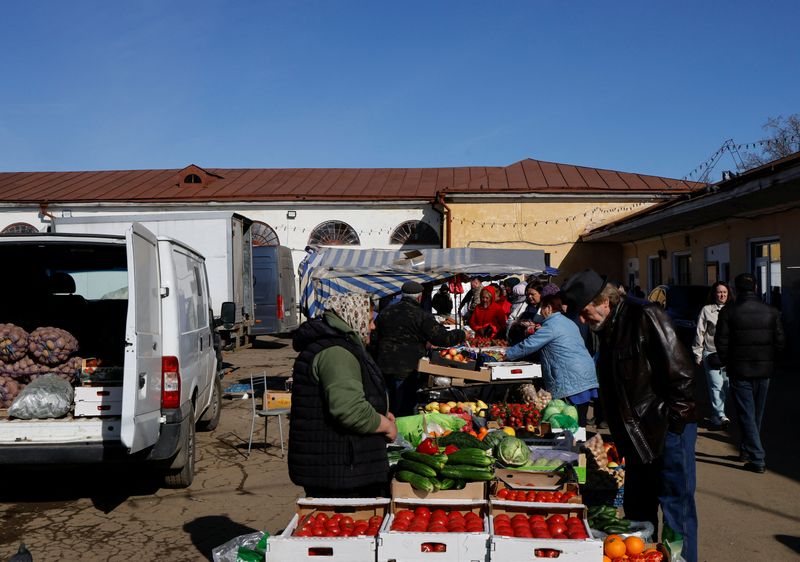
Russian inflation jumps 0.37% in latest week
MOSCOW (Reuters) – Russian consumer prices rose 0.37% in the latest week, up from 0.3% in the previous week, data showed, driven by price growth for butter, sunflower oil, dairy products and potatoes, pushing the headline figure since the start of the year to 7.4%.
The Economy Ministry estimated annual inflation to have reached 8.68% as of Nov. 18, up from 8.56% a week earlier.
Wednesday’s data suggested that inflation showed no signs of slowing despite monetary tightening measures, such as an interest rate hike on Oct. 25 to 21%, its highest level in over 20 years. Prices rose by 0.3% in the week before.
Prices for butter rose by 1.4% during the week. Earlier the government started to import butter from the United Arab Emirates and Turkey to contain the price growth, which has sparked cases of supermarket theft across Russia.
“Enterprises in the dairy industry have experienced increased costs for raw materials, logistics, and employee wages. One of the reasons for the rise in raw material costs is the increase in global prices for dairy fats,” the central bank said.
Prices for potatoes, a staple food for many Russians, have risen by 74% since last December, the data showed, an increase blamed by the central bank mainly on bad weather.
“Due to unfavourable weather conditions and a reduction in planted areas, Russian farmers harvested fewer potatoes than the previous year. This led to a decrease in supply,” it added.
The regulator also blamed the weaker rouble, which lost about 20% of its value against the dollar since early August, for growth in prices for imported fruits such as oranges, lemons and bananas. Prices for bananas grew by 1.2% in the latest week.
The central bank raised its year-end inflation forecast to between 8.0% and 8.5% at its latest rate-setting meeting, while the government still maintains its forecast of 7.3%.
The Economy Ministry said the government was considering import relief for potatoes, onions, carrots, cabbage, and apples as well as an extension of a rice export ban into 2025 as part of price control measures.

